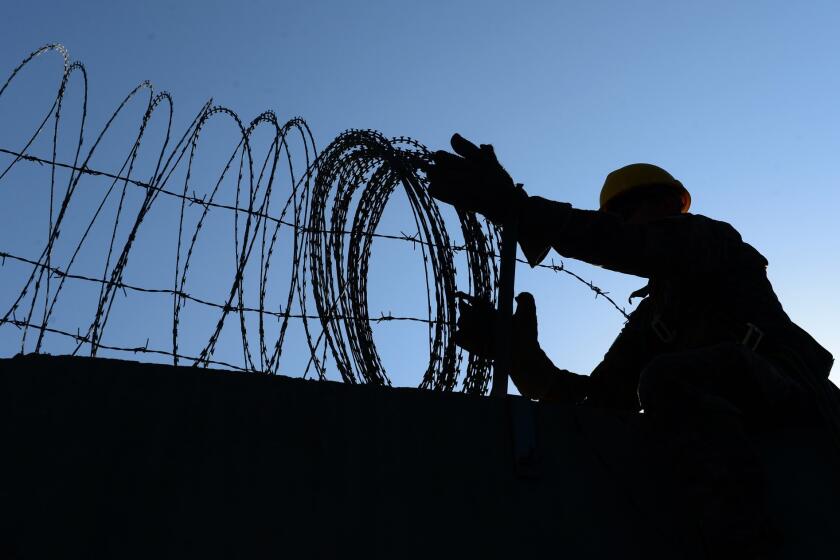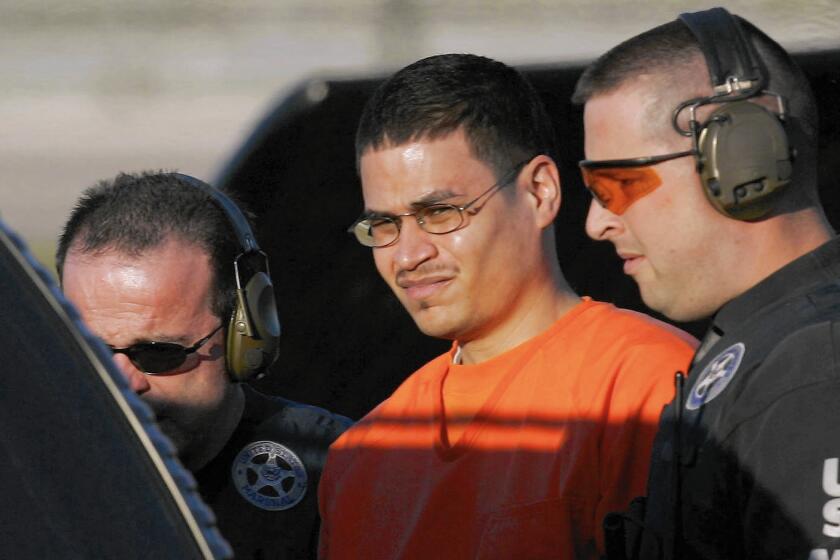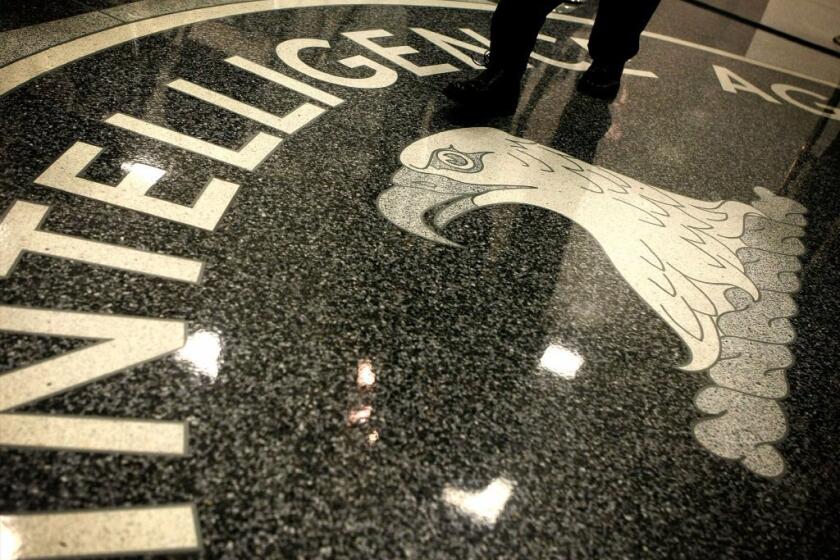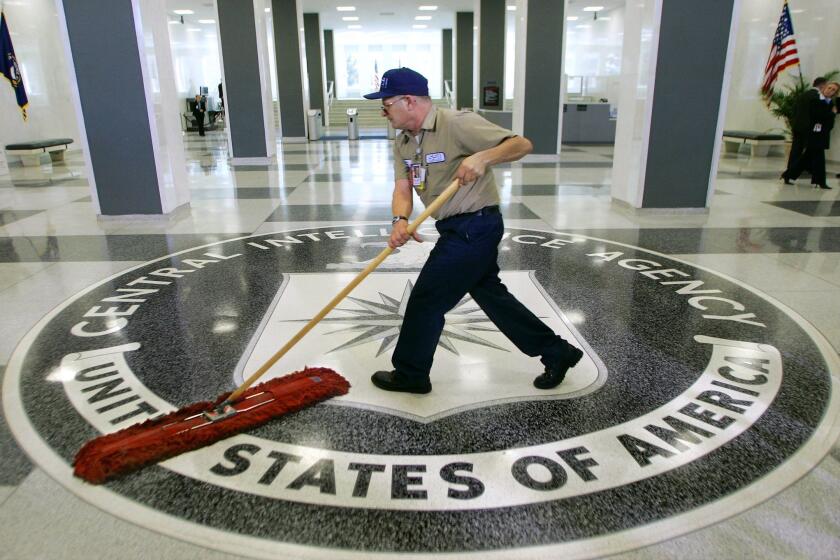Full Coverage: Senate Intelligence Committee report on CIA interrogations
A Senate panel’s report found that the CIA’s secret detention and interrogation program lost track of captives, produced false confessions, fabricated information and produced no useful intelligence about imminent terrorist attacks. Among the other key findings: The spy agency kept lawmakers in the dark about some of its methods and actions and later intentionally misled its members.
Here is a collection of The Times’ coverage.
- 1
The CIA’s brutal interrogations of terrorism suspects from 2002 to 2008 led to false confessions and fabricated information, produced no useful intelligence about imminent terrorist attacks and were so badly run that the CIA lost track of captives, according to a long-delayed Senate report released Tuesday.
- 2
In an unprecedented news conference from CIA headquarters, agency Director John Brennan admitted that some officers had engaged in “abhorrent” conduct in their interrogations of terrorism suspects, but he insisted that the secret program had provided “useful intelligence.”
- 3
The U.S. military shut its last detention center in Afghanistan on Wednesday, a day after a Senate Intelligence Committee report highlighted torture of terrorism suspects at former CIA-run prisons in the country.
- 4
A Senate committee report describing the CIA’s torture of detainees and accusing the agency of lying to top White House officials about its secret program may be the most detailed excavation of government officials’ misconduct in years.
- 5
Did torture make America safer?
- 6
The release of the Senate Intelligence Committee report on CIA torture shocked the nation and opened a variety of political divisions.
- 7
As a former prisoner of war who experienced torture at the hands of the North Vietnamese, John McCain has more standing, by far, than any of his colleagues in the U.S.
- 8
The Senate Intelligence Committee report on CIA torture inadvertently could bolster the legal defense of an accused Sept. 11 plotter and other Guantanamo Bay detainees who have long complained about abuse and mistreatment at the hands of the spy agency.
- 9
- 10
The first detainee interrogated in the old abandoned brick factory north of Kabul became the model for what would later unfold in the cave-like halls of a CIA interrogation facility known as the “Salt Pit.”
- 11
A Democratic-led panel’s explosive report detailing abuses in post-Sept. 11 intelligence gathering met with an uneasy and uneven response Tuesday from Republicans, who alternately questioned its accuracy, warned of a potential international backlash or downplayed the findings as old news.
- 12
When CIA interrogators waterboarded their first prisoner, Al Qaeda operative Abu Zubaydah, on Aug. 4, 2002, they justified the simulated drowning as a vital tool to extract secrets about future attacks against the United States.
- 13
Revelations about Central Intelligence Agency mistreatment of captive terrorism suspects spurred worldwide revulsion Tuesday and provided ammunition to foreign critics who accuse the United States of a double standard on human rights at home and abroad.
- 14
President Obama sought Tuesday to soften the impact of a new Senate committee report on the use of waterboarding and other brutal methods of interrogation in the U.S. response to terrorist attacks and threats, pledging publicly that he would try to make sure that the country never resorts to such methods in the future.
- 15
Americans have long known that, in the aftermath of Sept. 11, the CIA subjected suspected terrorists to inhuman and degrading treatment that amounted to nothing less than torture.
- 16
A timeline of the CIA’s detention and interrogation program and its oversight provided by the Senate Select Committee on Intelligence.
- 17
Torture is a federal crime, and those who authorized it and engaged in it must be criminally prosecuted.
- 18
There has been a suggestion in recent days that now is not a good time to release a review prepared by the Senate Intelligence Committee of the CIA’s detention and interrogation program.
- 19
To the editor: The report on torture demonstrates that it may have taken 200 years, but at the first significant domestic attack since the War of 1812 — the 9/11 attack, which killed one-tenth the number of people who die annually in auto accidents — we were quick to jettison the principles we so energetically strive to export to the rest of the world.
- 20
One of the chief points of the Senate’s report on the CIA’s torture of prisoners at its secret detention camps is that the expressed justifications for the often brutal interrogations shifted depending on circumstances.
- 21
The CIA’s brutal interrogations of terrorism suspects between 2002 and 2008 led to false confessions and fabricated information, produced no useful intelligence about imminent terrorist attacks and was so badly run the CIA lost track of captives, according to a long-delayed U.S.
- 22
Saying that the CIA engaged in activities that were “a stain on our values and our history,” Sen.
- 23
- 24
- 25
Over the past several decades, and especially since the terrible tragedy of 9/11, the CIA has been at the forefront of our Nation’s campaign against al-Qa’ida and other terrorist organizations worldwide.
- 26
Throughout our history, the United States of America has done more than any other nation to stand up for freedom, democracy, and the inherent dignity and human rights of people around the world.




















